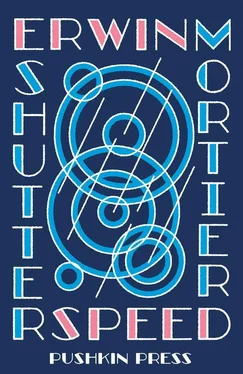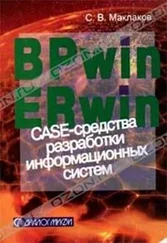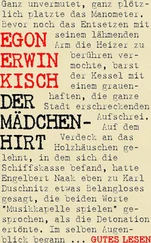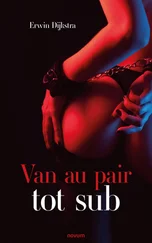‘People talk a lot of rubbish,’ he said.
I cut up my slice of bread as reproachfully as I could.
‘Just like your father,’ he growled. ‘If you’ve got something on your mind, kiddo, you could at least open your mouth and say so. Can’t tell what’s wrong by the smell, can we?’
I scraped the bottom of my bowl of buttermilk pudding over and over with my spoon. I knew exactly how to wind them up.
‘Can I have some more sugar?’ I asked casually.
‘You know where it’s kept,’ snapped Aunt.
I got up and went through to the scullery.
‘It was his stomach that killed him, Joris,’ said Aunt when I sat down again. ‘That’s all you need to know. They saw no point in an operation. He couldn’t keep anything down at the end. Had his bed in there.’ She pointed to the front room.
‘She couldn’t handle it, your mamma couldn’t. You should have seen the state of you when you first got here …’
‘Laura,’ said Uncle Werner. ‘Please, don’t …’
There was no stopping her.
‘Dammit, your hair was full of stale breadcrumbs, three days old at least.’
She picked up her spoon. ‘I was the one changing his sheets, nobody else. Me and Werner, that is. Three times a day, sometimes, when he spat blood. Spat out all his insides in the end.’
She bent over her bowl and ate. Then she put down her spoon again. ‘So now you know.’
I got up and made for the door.
‘Joris,’ Uncle called after me.
‘Leave me alone.’
‘They never liked us,’ I overheard Aunt say.
‘Nor we them, Laura,’ said Uncle.
A short time afterwards he came upstairs and sat down on the edge of my bed.
‘Yes, my boy,’ he sighed. ‘She’s going through the change. So are you, in a way … And then there’s me, the dumbo in between.’
His chest shook with rueful laughter. Me going through a change, what could he mean? He could have been my father. What if, in the days before I was born, he had gone to one of those parties now fossilised in the stiff pages of the albums, and had asked my mother to dance? If that had happened, my real father would simply have been some strange uncle, the kind of relation who was remembered at family gatherings with shakes of the head and remarks about what a shame it was to go so young.
In photos dating from before my birth, my absence from them felt like an unforgivable oversight. There was something wrong about the sunlight, and about the smiling faces at dinners from which I was excluded. Not only was it impossible to imagine the world without me in it, the question whether I would still be me if my mother had married someone else kept preying on my mind. Who was I? Which part of me came from where?
When I took a good look at Uncle I saw a sort of mirror image of myself, a portrait that the artist had taken a lot of liberties with, so that I could see the likeness in the features while the eyes were those of a complete stranger. I hated his complacency, because I knew I had it in me too, deep down. The boys I jostled when we stood in line at school always made me pity them for one reason or another: their trousers were too short or their pullovers were their brothers’ cast-offs or they were hopeless at arithmetic, or just because I happened to be me and there was nothing, nothing at all, to be done about it.
‘There is so much we don’t know,’ said Uncle, as if he could read my thoughts. ‘Your pa, my brother, Joris … Don’t forget I slept in the same bed with him for eighteen years in this very house …’
He paused, letting his shoulders sag.
‘She thought she could wean him off it, I suppose … Perhaps I thought so too … He was headstrong, you know. A bit bashful at first perhaps …Once he got going, though … always first in line. Charging ahead … And then …’
He put his arm around my shoulders. I wanted to snuggle up to him, but thought that would be childish.
‘I don’t know why … But so it goes, that’s all I can say. So it goes. The older I get, the less I understand … But perhaps you’ll be able to explain it to me, later on, when you’re grown up and have read many more books.’
He slapped his hand on my knee and stood up. At the door he turned round.
‘Our ma made us go out to work at seventeen. Work and save money, that was what we were supposed to do. When I get too old for hard graft, she used to say, you two can have the shop.’
He stepped into the corridor, leaving my door open. ‘A good woman … far too good,’ he muttered. The rest of the evening passed in a silence so fragile that the slightest disturbance made a din. In the scullery Aunt emptied the cupboards so as to clean the insides, which gave her ample opportunity to rattle pots and pans and jam jars by way of Morse signals of reproach to the rest of the house. Finally the whistle of the boiling kettle brought salvation.
‘Anyone for tea?’ she called, in token of truce.
I returned the book to Mr Snellaert on my last day. I had spotted his bicycle in the school playground, and the steel door to the hallway and the classrooms beyond was open.
There was no reply when I knocked. It was some time before he called for me to come in.
It was dark in the room. He had lowered the blinds over the big south-facing window. The sun coming in through the slits cast thin horizontal stripes across the desks, lighting up the triangles and protractors which were normally kept on top of the blackboard but which had been washed and now lay drying amid the sharp smell of detergent.
From the far end of the classroom, next to the stove, came the whirr of a film projector.
‘Mr Snellaert?’ I said.
A cupboard door closed.
‘Ah it’s you, Alderweireldt …’
Something stirred at the back of the room. The blinds rattled softly and the stripes of sunlight widened. There he stood, in the corner at the back, by what had been my desk for the entire school year. Over the noticeboard hung long ribbons made of something resembling dark plastic.
‘I was busy with my cine films,’ he said, not seeming to mind being disturbed.
Mr Snellaert’s hobby was common knowledge. He would turn up with his film camera on special occasions such as friendly football matches or village fairs, and it was funny how everyone gave their hair a quick pat or straightened their collar as soon as the lens swung in their direction.
‘That’s the trouble,’ I had heard him remark one day. ‘The moment they know they’re being filmed, half of it’s ruined.’
He showed his films as entertainment during village festivities, and gave his compilations titles like ‘Customs and Crafts of Yore’, or ‘Forgotten Characters’. The volleys of laughter and cries of recognition from behind the drawn curtains of the parish hall would be audible in the road outside. He always addressed his audience as Dear Friends.
‘I’ve come to return the book,’ I said. ‘I’m leaving tomorrow.’
He made his way among the desks towards me.
‘So I’ve heard. I hope you’ll keep your nose a bit cleaner over there. You’ll find life in the city very different.’
My last school report had not been brilliant, just average.
‘Could do very much better if he tried,’ had been his final comment under the heading ‘General Attitude’.
‘Oh well, perhaps you’ve learned a thing or two from that book.’
‘Yes, sir.’
He took the book from me and tapped the spine with his fingers as he walked to the cupboard at the back of the classroom to put it back with the others.
‘Perhaps it’s a good thing you’re going away. Things seem to be going downhill faster than ever …’ he said, more to himself than to me.
He slipped the book in where it belonged. ‘There’s a sequel. Mysteries of Civilisation . Would you care to read it?’
Читать дальше












